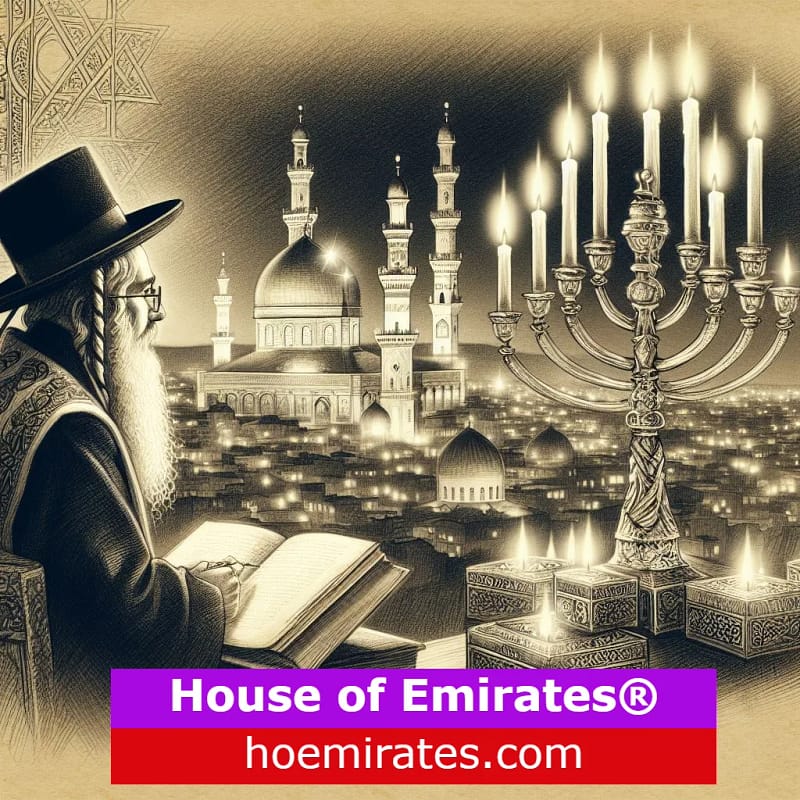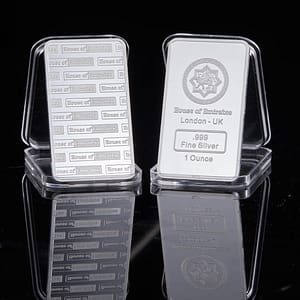By: Ahmad Saed Alzein, CEO of House of Emirates®
London – UK
It has been always my deep conviction and assertion that no land can prosper without the Jews, I do believe their contribution to the prosperity of any society is so essential, history has proved it over and again that their indispensable skills and brilliance are paramount in transforming the surrounding societies.
It pains me to see some hateful currents sweeping sometimes from here and there trying to dehumanize these wonderful people, we owe so much to their contributions in the fields of science, medicine, technology and many other aspects of our lives.
In this article, I am trying to shed some light on the beautiful history of Jews in Muslim lands, hoping it will remind all of us of how we were before and how we can be today. Indeed, Historical stories that challenge stereotypes and highlight cases of tolerance and coexistence are important in a world often clouded by religious and political hatred. One such story is the remarkable history of Jewish communities that flourished in Muslim countries.
From the Golden Age of Muslim Spain to the bustling cities of Aleppo, Istanbul and Cairo in the Middle East and North Africa, Jews found refuge, prosperity and even a flourishing intellectual and cultural exchange under Islamic rule.
Jewish Minister of Foreign Affairs in Muslim Spain
Al-Andalus or Muslim Spain is the time where the most shining examples of tolerance and enlightenment can be found. Jews enjoyed unprecedented religious freedom and opportunities for success during the Umayyad Caliphate. The immigration of Jews to Spain was a continuous process during the first several centuries of Muslim rule. With the establishment of the caliphate of Córdoba in the tenth century, the influx of Jews probably accelerated.
I recall here the distinguished Hasdai (Abu Yusuf ben Yitzhak ben Ezra) ibn Shaprut, who was appointed as chief physician to Caliph Abdul Rahman III (912-961 AD), by his engaging manners, knowledge, character, and extraordinary ability, he gained the caliph’s absolute trust to such a degree that he became the caliph’s confidant and faithful counsellor. He was technically the minister of foreign affairs in the caliphate; he had also control of the customs and ship-dues in the port of Córdoba. Hasdai arranged the alliances formed by the caliph with foreign powers, and he received the envoys sent by the latter to Córdoba.
Jewish scholars like Maimonides shaped the intellectual landscape of the time. A well-known agreement between Jews, Muslims and Christians in cities like Córdoba and Toledo fostered a spirit of cultural exchange and respect.
Dhimma: legal certainty and autonomy
The concept of Dhimma was central to relations between Jews and Muslims in the Middle Ages. Dhimmis were guaranteed the right to practice their faith, do communal things and live according to their traditions. This system ensured security and autonomy for Jewish communities in Muslim societies. In contrast, dhimmis were subject to a special tax called jizya, but were exempt from military service and in many cases received financial rewards.
When Spain in 1492 AD started its brutal inquisition courts by killing and expelling its Jewish and Muslim citizens, jews found safety and refuge in the Muslim shores of North Africa and the middle east. In fact, many Jewish scholars today assert the notion that Jews throughout their history were only safe in Muslim lands!
Cultural and spiritual exchange
Vibrant artistic and spiritual life in medieval Islamic societies paved a way for Jewish, Muslim, and Christian cultural and intellectual exchange. The work of Jewish scholars included the translation of ancient Greek and Roman texts into Arabic, which preserved and supplemented ancient wisdom. Along with their Muslim counterparts, Jewish intellectuals contributed to the advancement of philosophy, mathematics, and astronomy at the House of Wisdom in Baghdad. This spirit of cooperation and exchange has enriched the cultural heritage of both Jews and Muslims.
Synagogues in Muslim lands: Architectural Heritage
The continued presence and cultural contribution of Jewish communities in Muslim countries can be seen in the architectural heritage they left behind. Synagogues are all over the Middle East and North Africa, such as the Central Synagogue of Aleppo, Ben Ezra Synagogue in Cairo and the El Ghriba Synagogue in Tunisia. These sacred places served not only as places of worship, but also as centres of community life where Jewish communities gathered to pray, study and celebrate.
The history of Jewish communities in Muslim countries is proof of the possibility of peaceful coexistence and mutual respect between people of different faiths, religions and beliefs. There are rich and living examples of tolerance, cooperation and shared heritage that offer valuable lessons for the present and the future. As we navigate the complexities of our diverse world, let us draw inspiration from the stories of the past to build bridges of understanding and create a more inclusive and harmonious society for all.





